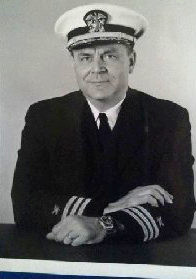Mendel L. Peterson
Mendel L. Peterson (1918–2003) was an American pioneer in the field of underwater archaeology. He is often referred to as the "father of underwater archaeology" due to his significant contributions to the discipline. Peterson's work laid the foundation for modern underwater archaeological methods and practices.
Early Life and Education[edit | edit source]
Mendel L. Peterson was born in 1918. He developed an early interest in history and archaeology, which he pursued through his academic studies. Peterson attended University of California, Berkeley, where he earned his degree in archaeology.
Career[edit | edit source]
Peterson began his career as a historian and archaeologist with a focus on maritime history. He joined the Smithsonian Institution in the 1950s, where he played a crucial role in the establishment of the National Museum of American History's underwater archaeology program.
Underwater Archaeology[edit | edit source]
Peterson's most notable contributions were in the field of underwater archaeology. He was instrumental in developing techniques for the recovery and preservation of artifacts from shipwrecks and other submerged sites. His work included the use of scuba diving equipment, which was innovative at the time, to explore underwater sites.
Notable Discoveries[edit | edit source]
Throughout his career, Peterson was involved in several significant underwater archaeological projects. These included the exploration of shipwrecks from various historical periods, such as the Spanish Armada and Civil War era vessels. His efforts helped to uncover and preserve numerous artifacts that provided valuable insights into maritime history.
Legacy[edit | edit source]
Mendel L. Peterson's contributions to underwater archaeology have had a lasting impact on the field. His pioneering methods and dedication to the preservation of underwater cultural heritage have inspired subsequent generations of archaeologists. The techniques he developed are still in use today and continue to influence the practice of underwater archaeology.
Related Pages[edit | edit source]
- Underwater archaeology
- Smithsonian Institution
- National Museum of American History
- Scuba diving
- Spanish Armada
- Civil War
Categories[edit | edit source]
Search WikiMD
Ad.Tired of being Overweight? Try W8MD's physician weight loss program.
Semaglutide (Ozempic / Wegovy and Tirzepatide (Mounjaro / Zepbound) available.
Advertise on WikiMD
|
WikiMD's Wellness Encyclopedia |
| Let Food Be Thy Medicine Medicine Thy Food - Hippocrates |
Translate this page: - East Asian
中文,
日本,
한국어,
South Asian
हिन्दी,
தமிழ்,
తెలుగు,
Urdu,
ಕನ್ನಡ,
Southeast Asian
Indonesian,
Vietnamese,
Thai,
မြန်မာဘာသာ,
বাংলা
European
español,
Deutsch,
français,
Greek,
português do Brasil,
polski,
română,
русский,
Nederlands,
norsk,
svenska,
suomi,
Italian
Middle Eastern & African
عربى,
Turkish,
Persian,
Hebrew,
Afrikaans,
isiZulu,
Kiswahili,
Other
Bulgarian,
Hungarian,
Czech,
Swedish,
മലയാളം,
मराठी,
ਪੰਜਾਬੀ,
ગુજરાતી,
Portuguese,
Ukrainian
Medical Disclaimer: WikiMD is not a substitute for professional medical advice. The information on WikiMD is provided as an information resource only, may be incorrect, outdated or misleading, and is not to be used or relied on for any diagnostic or treatment purposes. Please consult your health care provider before making any healthcare decisions or for guidance about a specific medical condition. WikiMD expressly disclaims responsibility, and shall have no liability, for any damages, loss, injury, or liability whatsoever suffered as a result of your reliance on the information contained in this site. By visiting this site you agree to the foregoing terms and conditions, which may from time to time be changed or supplemented by WikiMD. If you do not agree to the foregoing terms and conditions, you should not enter or use this site. See full disclaimer.
Credits:Most images are courtesy of Wikimedia commons, and templates, categories Wikipedia, licensed under CC BY SA or similar.
Contributors: Prab R. Tumpati, MD


